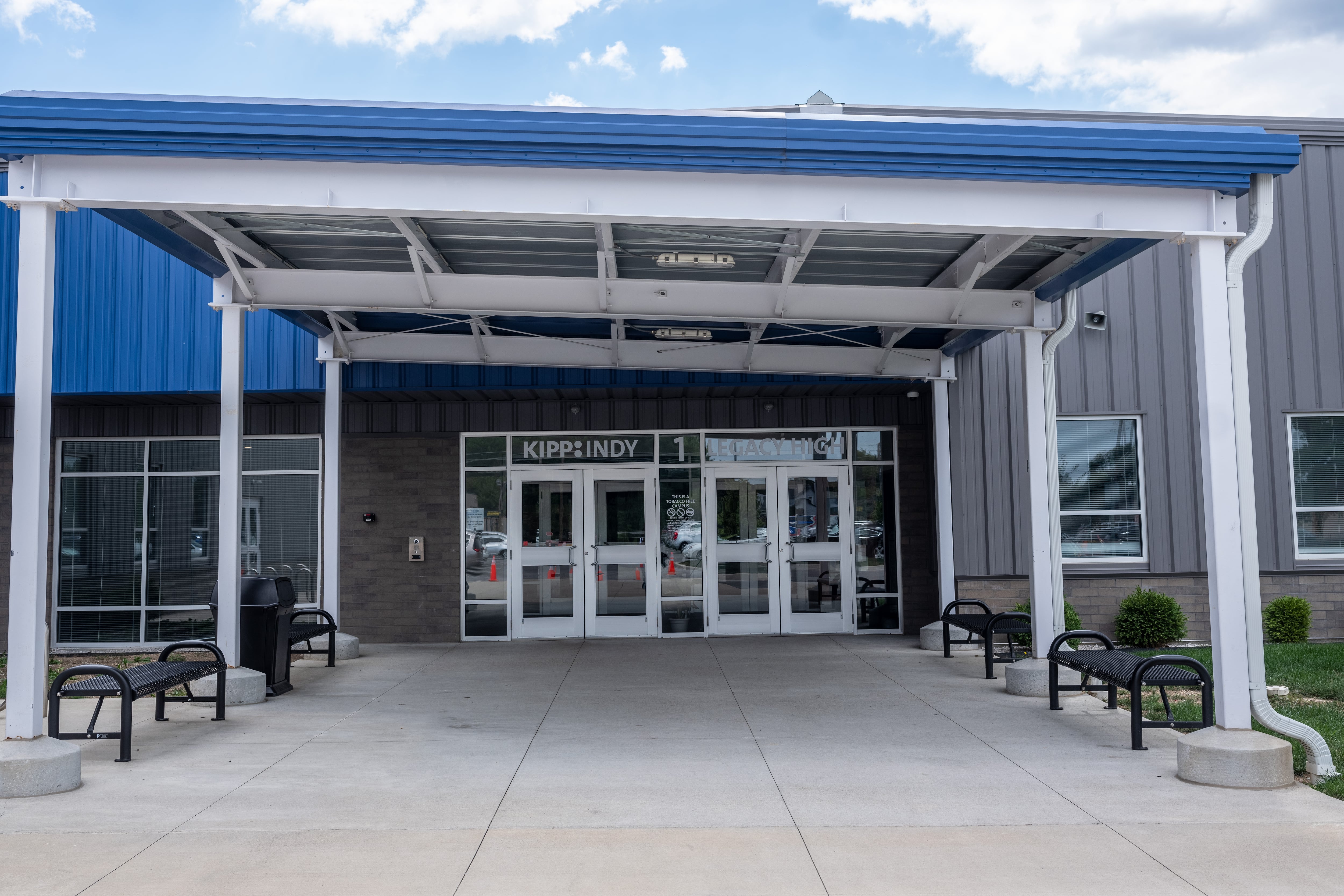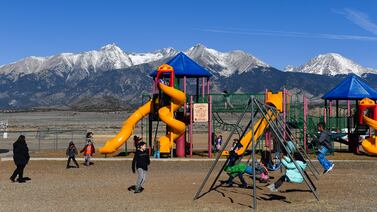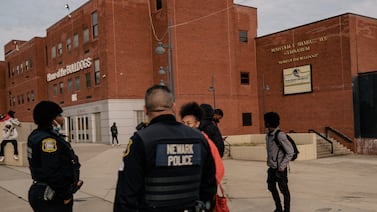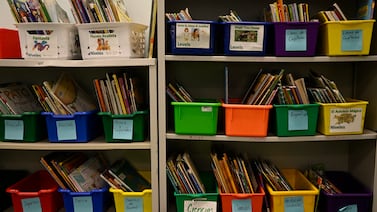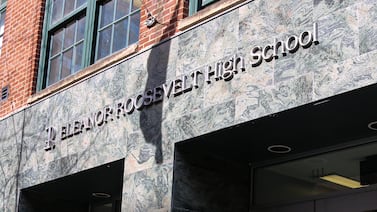Sign up for Chalkbeat Indiana’s free daily newsletter to keep up with Indianapolis Public Schools, Marion County’s township districts, and statewide education news.
Indianapolis Public Schools hopes to renew its agreements with three KIPP Indy charter schools that are part of the district’s network of autonomous Innovation schools, although officials have identified some academic areas needing improvement.
Additionally, in a unique collaboration between charters and IPS, the school board will vote Thursday on a plan to transfer ownership of the Julian Coleman School 110 building to KIPP Indy. IPS would also provide $10 million for a building expansion at the site, with the remainder of the cost to be covered by KIPP Indy.
The report by IPS officials recommends renewing its Innovation Network agreements with Unite Elementary, KIPP College Prep Middle School, and KIPP Legacy High School. Their renewals, which the full board will vote on Thursday, would last for five years. The schools’ state exam results and other academic indicators were mixed when compared with similar schools and IPS as a whole, the report found.
The transfer of the School 110 building, where Unite Elementary and College Prep are located, represents a striking collaboration between IPS and local charters. That’s because school facilities have frequently been the subject of disputes between the two parties. In recent years, IPS enrollment has dipped and the district has closed several schools, while charters in general have sought new space as their enrollment has grown.
KIPP Indy officials say the building addition will provide space for a school that has long offered a stable educational option in a community where multiple schools have closed. Right now, the building is operating at 140% of capacity.
The two schools in the building serve around 1,100 students combined.
Both IPS and KIPP Indy officials say the agreement represents a strong collaborative partnership.
“IPS is going to leverage unique sources that they have access to to invest, and we’re going to work hard on our end to identify resources as well,” KIPP Indy Executive Director Andy Seibert told Chalkbeat, referring to the agreement for the School 110 building. “And together we’ll do it.”
KIPP hopes for more classrooms, common areas
The School 110 building, which was rated in poor condition based on an analysis of district facilities, is already set to receive roughly $18.5 million in capital improvements funded through the referendum that voters passed last year.
That funding will cover deferred maintenance needs such as electrical and mechanical updates, roof repairs, gym improvements, and new flooring.
But Seibert hopes the proposed building expansion will add about 10 classrooms and more common spaces like a “cafenasium” — a combined gym and cafeteria. He anticipates construction to begin in the spring of 2025.
Plans and details of the building addition — including its total size, layout, and number of stories — have not yet been finalized. KIPP Indy would need to meet several obligations — including operating at at least 50% capacity and remaining in good standing with its authorizer — in order to be eligible to retain building ownership.
Math, English, and literacy results are mixed
The IPS staff report on the three schools’ academic performance found some areas where they outperform their peers, but other areas where they fell behind.
At Unite Elementary, the percentage of students reaching proficiency in both the math and English section of the state’s 2022-23 ILEARN exam was just above the average proficiency rates of schools with similar demographics, the report said. Proficiency for Unite’s Black and Hispanic students, in particular, was higher than similarly situated schools.
Yet the school’s IREAD proficiency rates fell below the average of comparative schools for both the 2022-23 and 2021-22 school years.
ILEARN proficiency rates at College Prep are also lower than the comparison school average, including for Black students.
Suspensions at both Unite Elementary and College Prep are also higher than the district and comparison school averages.
Seibert acknowledged a need for improvement, but said he hopes the network’s track record in student growth will lead to increases in proficiency.
Legacy High School, too, has a graduation rate higher than the IPS and statewide average.
Brian Dickey, the district’s executive director of portfolio strategy, pointed to the elementary and middle school’s increasing enrollment as a positive.
“The overall sustainability from an enrollment standpoint I think is just a testament to the work that the leadership, the board, has put in to building that trust within the community,” he told the IPS school board Tuesday.
KIPP Indy’s Innovation agreement with IPS is the first to come before the board since lawmakers changed how much the district can charge Innovation schools for goods and services.
It also comes as the district prepares to lose an estimated $4 million in property tax revenues to charter schools under another state law passed last legislative session.
KIPP Indy’s renewal agreements say IPS will provide transportation for Unite and College Prep students who live in Zones 2 and 3 of the district’s new enrollment zones. IPS will also provide districtwide transportation for Legacy High School.
Amelia Pak-Harvey covers Indianapolis and Lawrence Township schools for Chalkbeat Indiana. Contact Amelia at apak-harvey@chalkbeat.org.


